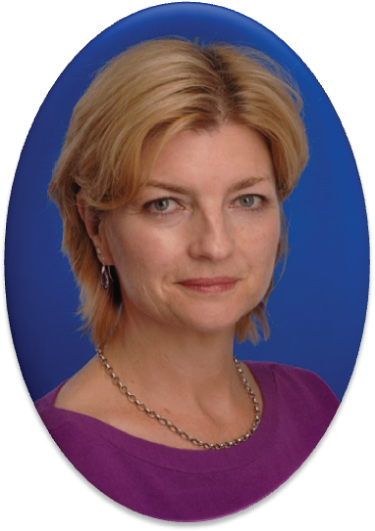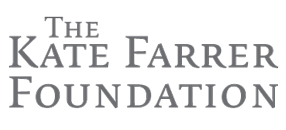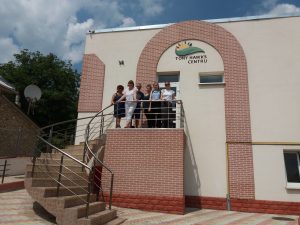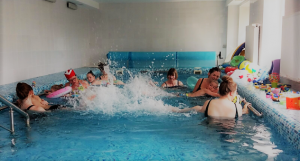Reflections on visiting Moldova with Childaid, July 2017 – Katy Mack and Lydia Farrer
Our 6 days in the Eastern European republic of Moldova is hard to sum up in a few words. Our priority was to meet staff and children at the Tony Hawks Rehabilitation Centre, where the KFF funds the salary of a speech therapist through Childaid, but we encountered much more. As well as meeting therapists, doctors and philanthropists in the capital, Chişinău, we spent time with dedicated playworkers and social workers in villages and above all, loved our time with the children who benefit from Childaid’s support. Everyone talked honestly and passionately about the struggle to combat deep economic, social and political corruption in Moldova, a country caught between European and Russian politics and values.
Childaid works alongside these individuals – who chose to stay in a country where nearly 50% of the population live below the national poverty line and many leave for brighter economic opportunities abroad – to give families medical support and enrich childhood memories for children who have to grow up very quickly.
Exploring Moldova was both emotional and rewarding so we’ve shared a few moments here (see our Smiling Faces page for photos!):
- Therapy at the Tony Hawks Centre: our first stop was meeting staff and children at a centre partially established by writer and comedian Tony Hawks, of Playing the Moldovans at Tennis fame. The Centre is run by Dr Diana Covalciuc, who ensures hundreds of infants and children receive the assessment and treatment their disability requires, for free. We hopped into the hydro-therapy pool to play games – a lot of fun and a LOT of splashing! – and observed the skilful physical, sensory and psychological sessions undertaken by physio, speech, music and occupational therapists. What stays with us was that the programme, which attracts families from miles around Chişinău, focusses both on rehabilitation and awareness by challenging the pervasive social stigma surrounding attitudes to disability in Moldova.
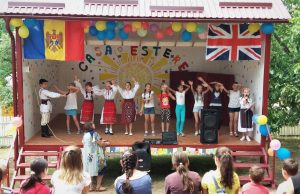
With our newly-painted handprint sun mural behind them, the Casa Esterei kids perform traditional songs and dances
- Fun at Casa Esterei: an hours drive out of Chişinău is rural Vălcinet, where another of Childaid’s partnerships is established. Casa Esterei provides children from the surrounding agricultural area with the resources throughout their 3 month summer holiday to socialise, enjoy crafts, practice songs and dancing and receive the social health education missing from their curriculum. We revived our rusty art skills to help children paint a bright sun mural, which provided the backdrop for a wonderfully lively performance of traditional songs and dance, and made bracelets, painted nails and helped children practice English for a play (bizarrely about a talkative donut!) Staying with generous Elena, Casa Esterei’s manager, we also heard sobering stories about the children’s restrictive family circumstances and prospects: this made us realise how valuable creative centres like Casa Esterei are to isolated communities across Moldova.
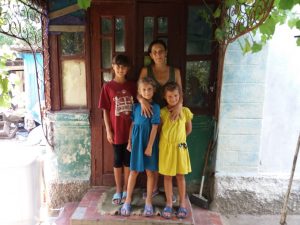
Families in Transnistria: with low employment, threatened property security and little educational opportunities, Childaid is establishing connections with local Transnistrian youth charities
- Tours of Chisinau and Transnistria: A tour that Childaid organised of Chişinău’s national children’s hospital, which operates without the basic clinical equipment we expect in the UK, was humbling. Katy also visited Transnistria, the self-proclaimed independent state to the north of mainland Moldova which is not recognised by the UN but maintains its own Communist government, military presence and currency. Its ‘frozen conflict zone’ status leaves the poorest of its (c. 475,000 citizens) with no central government health or social support; it was surreal to see statues of Lenin towering over tanks and gleaming apartment blocks alongside run-down residential slums – almost like time had stopped in Soviet-era Europe. It was, however, inspiring to meet charities who work tirelessly to eradicate the problem of abandoned children (as parents leave for jobs in Russia) and are creating Transnistria’s first foster care system and providing accommodation and mentorships for disadvantaged young adults to prevent prevalent issues like leaving education without qualifications, unemployment, alcoholism and teen pregnancy.
These memories just scratch the surface of what is a deeply complex and beautiful country. Please get in touch if you have any questions about our Childaid partnership, or if you would be interested in donating to this particular rehabilitation project. Above all, thank you to Martin at Childaid and all the wonderful people we met on our trip.
For more snapshots, visit our Smiling Faces page.
